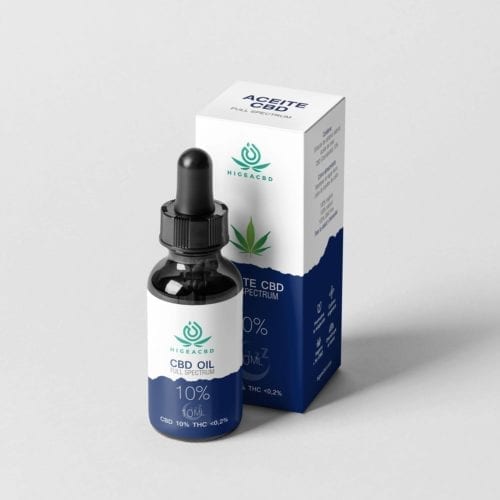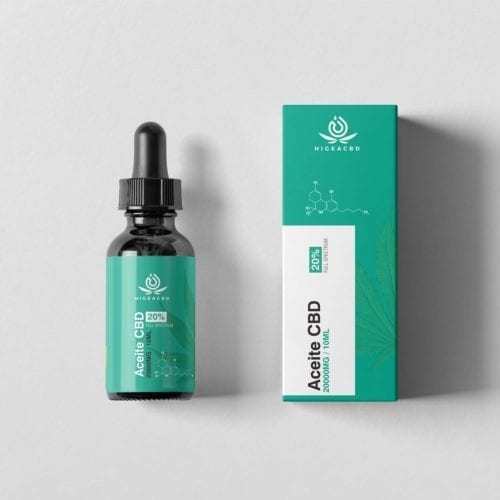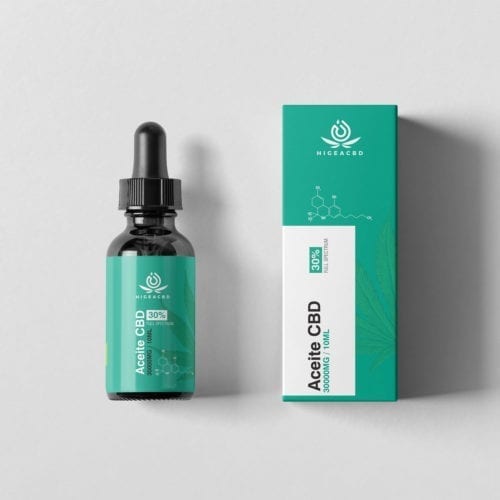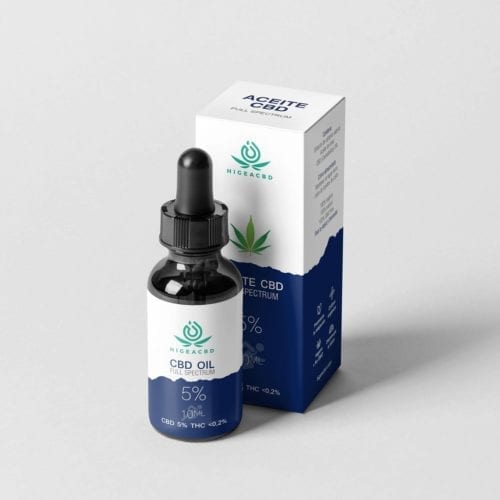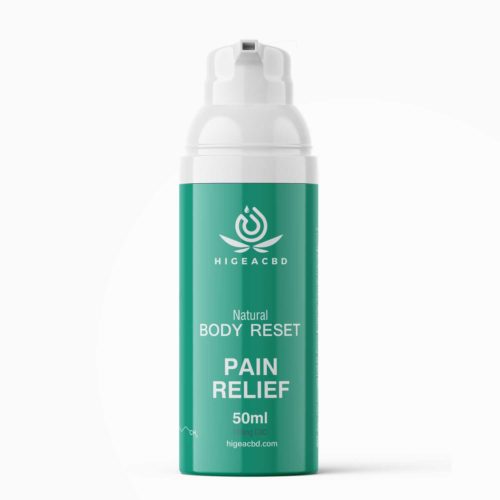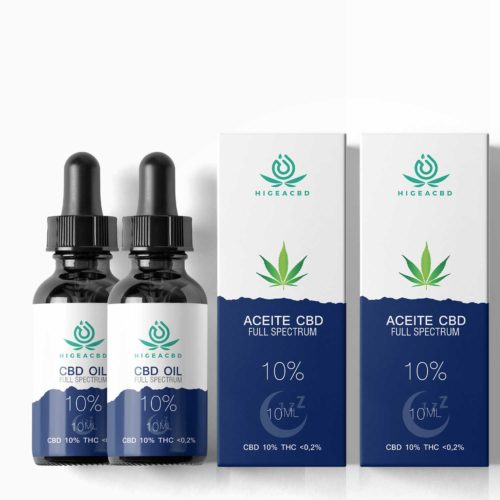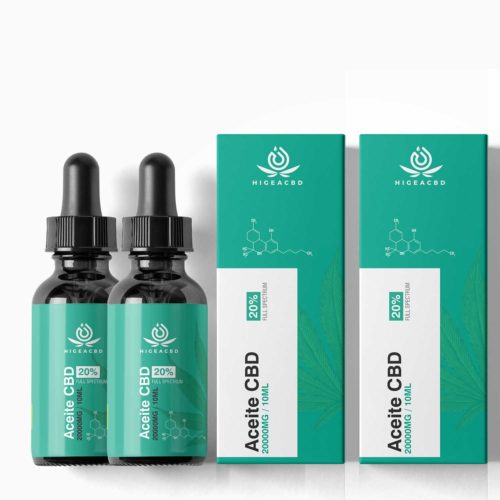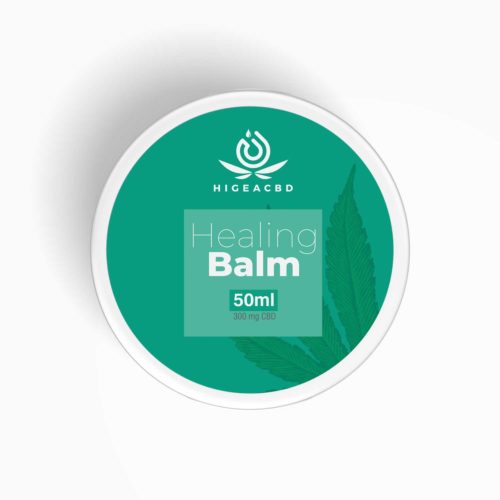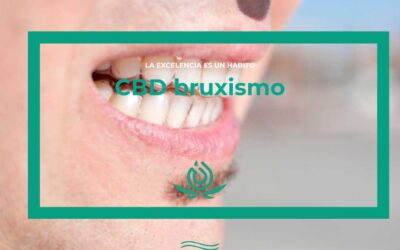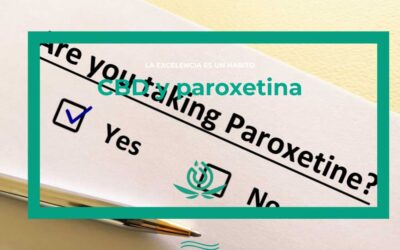Atherosclerosis and CBD
Due to its anti-inflammatory properties, CBD has many benefits for people with atherosclerosis. This is due to the fact that atherosclerosis is an inflammatory disease. Therefore, there is a relationship between atherosclerosis and CBD that can be positive for those suffering from this disease.
The inner layers of the arterial system become injured and inflamed, changing the architecture of the arteries over time. If these changes continue over a long period of time, they will become permanent. As a result, it is critical to stop or slow the process early to achieve optimal results.
Showing 1–8 of 25 results
-
Sale!
Aceite Higea CBD 10%
29,95€ Add to cart -
Sale!
Hygea CBD Oil 20%.
49,90€ Add to cart -
Hygea CBD oil 30%.
89,95€ Add to cart -
Sale!
Aceite Higea CBD 5%
19,95€ Add to cart -
Higea CBD muscle pain cream 50 ml
21,95€ Add to cart -
Basic Pack
47,41€ Add to cart -
Medium pack
94,81€ Add to cart -
Sale!
Healing Balm Hygea CBD
19,95€ Add to cart
What is atherosclerosis?
Before we talk more in depth about the link between atherosclerosis and CBD, it is important to know what atherosclerosis is. Atherosclerosis is a condition in which plaque builds up inside the arteries. Arteries harden and narrow, which restricts blood flow and increases the risk of blood clots, heart attack, and stroke.
This disease can begin as early as childhood and progresses over time. Complications can be avoided with lifestyle modifications, medications, and surgical procedures.
Plaque builds up on the inside walls of the arteries and causes atherosclerosis. The blood vessels that carry blood and oxygen from the heart to the rest of the body are known as arteries.
Plaque is a sticky substance made up of fat, cholesterol, calcium, and other ingredients. As mentioned, arteries stiffen and constrict as plaque builds up.
Atherosclerosis can begin as early as childhood and progresses over time. It can cause a variety of problems. Blood, oxygen, and nutrients can’t get to the rest of the body because the arteries are too narrow or clogged. Blockages in the limbs, legs, and other parts of the body can eventually result in death or tissue infection.
A piece of plaque may even break off and lodge in the body, causing damage. In a narrowed artery, a blood clot can also form. It may loosen and migrate through the artery later.
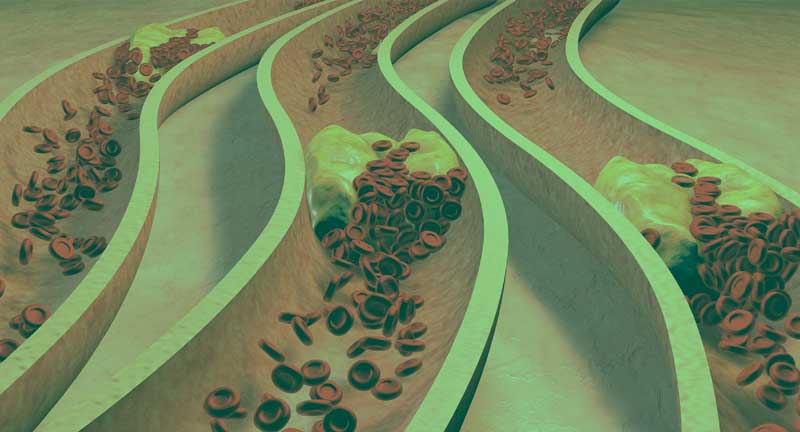
What health problems does atherosclerosis cause?
Atherosclerosis can result in a variety of major health problems and emergency crises, including:
- The formation of blood clots.
- Coronary artery disease.
- Carotid artery disease.
- Chronic kidney disease.
- Myocardial infarction.
- Death.
Who is most at risk for atherosclerosis?
Although there is the possibility of using CBD to treat atherosclerosis, it is important to be clear that this disease can affect any individual. However, some people are more likely to have it than others. The following are some of the risk factors:
- Men are more likely.
- A family history of premature cardiovascular disease.
- Diabetes mellitus.
- high blood pressure
- No exercise or physical activity.
- High cholesterol levels.
- Obesity.
- An unhealthy diet.
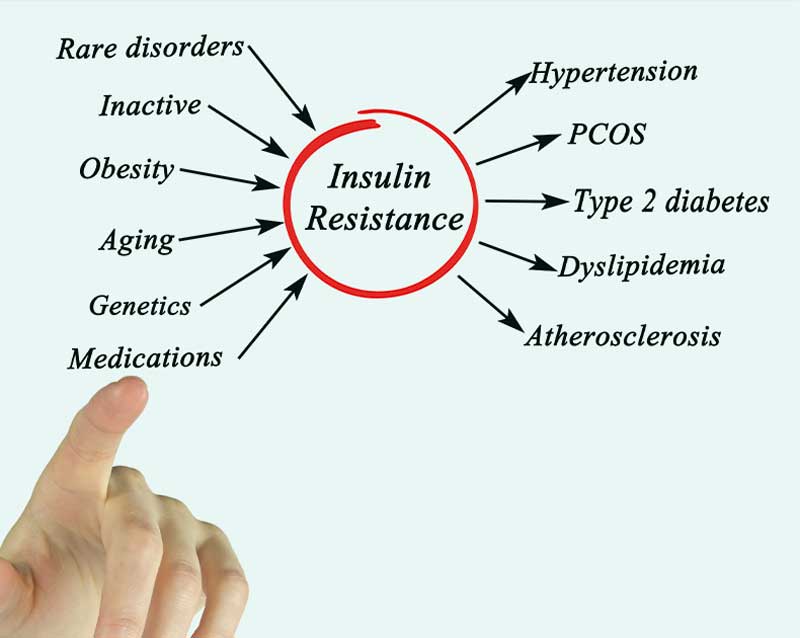
What causes atherosclerosis?
Although the risk factors are known, it is not really known why some people get atherosclerosis and others do not. Scientists believe the origin of the disorder is damage to the endothelium, the inner lining of the artery.
Damage can be caused by smoking, excessive cholesterol, high blood pressure, high blood glucose, and other reasons. Plaque builds up in the area where the damage occurred. This substance can cause the body to generate other elements, which will also accumulate. Arteries thicken over time and blood flow becomes less and less.
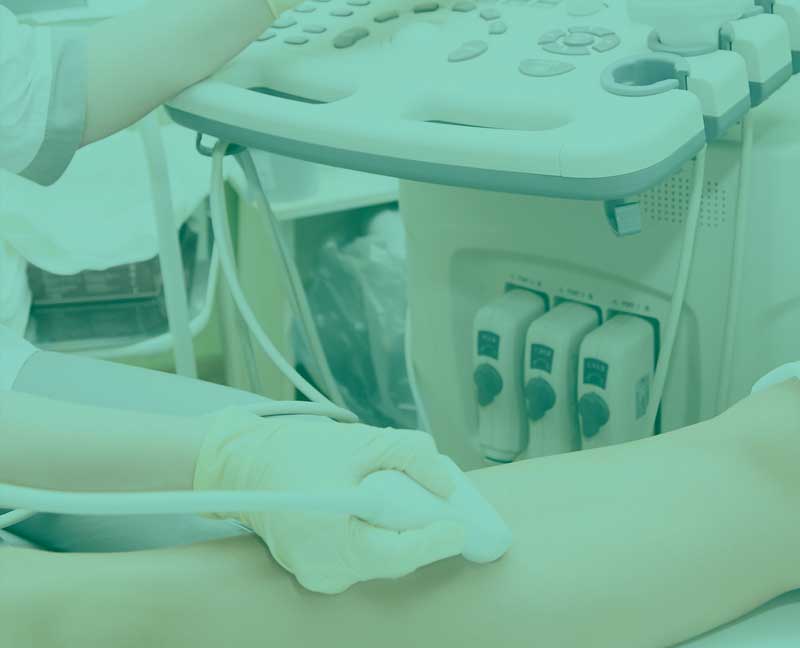
How is it diagnosed?
To diagnose atherosclerosis, a medical specialist must look at the patient’s personal and family medical history. You should also perform a physical exam by listening with a stethoscope to the heart, looking for a weak or absent pulse. Also look for what is called a “bruit,” which is an abnormal sound from the arteries.
Before recommending a CBD treatment for atherosclerosis, the doctor should perform a blood test. This test aims to determine the amount of fat, cholesterol, sugar and protein in the blood.
Your doctor may also recommend the following tests:
- Angiography to locate and measure blockages.
- Ankle/arm index, to compare the blood pressure in the ankle to that in the arm.
- Chest X-ray.
- Computed tomography.
- Echocardiogram and electrocardiogram.
What are the symptoms of atherosclerosis?
Atherosclerosis usually goes unnoticed until an artery narrows or blood flow stops completely. Many people don’t know they have the disease until they experience a medical emergency, such as a heart attack or stroke.
CBD and atherosclerosis: What are the benefits?
As mentioned at the beginning, CBD and atherosclerosis are positively related, as cannabidiol provides the followingbenefits:
- Stabilizes blood sugar levels.
- It also promotes weight loss.
- Stops inflammation.
- Protects arteries from oxidative stress.
- Lowers blood pressure.
Multiple organ systems are involved in the treatment of atherosclerosis. You are likely to fail in trying to stop the growth of the disease by just one of these mechanisms. Multifaceted techniques are the most effective therapies.
THC and CBD, two compounds found in the cannabis plant, are excellent therapeutic alternatives for the disease. At the same time, they address numerous causes of atherosclerosis.
CBD for atherosclerosis: How does it work?
CBD provides antioxidant support to the body, decreasing inflammation of the arterial wall, and improving liver function to lower cholesterol levels. It also controls blood sugar levels, which are beneficial for people with atherosclerosis.
In addition, CBD helps promote the endocannabinoid system, which is important for maintaining homeostasis in the body, particularly the cardiovascular system. All of these interventions work together to improve cardiovascular health and slow the progression of atherosclerosis.
Endocannabinoid system
To understand the relationship between atherosclerosis and CBD, we first need to understand the function of the endocannabinoid system and the CB1 and CB2 receptors. The endocannabinoid system is a collection of receptors found throughout the body that work together.
This system is extremely complicated and is involved in a variety of organ functions. These effects are regulated by two primary endocannabinoids in the body.
Endocannabinoid receptors are activated by anandamide. NAPE-selective phospholipase D (PLD) is the enzyme that produces anandamide, while fatty acid amide hydrolase is the enzyme that degrades it (FAAH).
This is significant because CBD’s ability to block FAAH, which limits the breakdown of anandamide, is responsible for most of CBD’s effects on the endocannabinoid system.
On the other hand, CBD and 2-AG have extremely comparable effects. It is used to limit the rate at which anandamide is degraded to control its levels. Like anandamide, this endocannabinoid is produced by the sn-1-specific enzyme diacylglycerol lipase (DAGL) and degraded by FAAH.
Receptores CB1 y CB2
CBD does not bind directly to CB1 receptors. Instead, what it does is block the degradation of anandamide, our main endocannabinoid, which is what activates these receptors.
CB1 receptors are mainly present in the brain, although they can also be found in other parts of the body. Blocking these receptors reduces hunger, keeps blood sugar stable and minimizes inflammation.
In the case of CB2 receptors, CBD does not connect to them in the same way it does to CB1 receptors. Rather, it elevates anandamide levels, which are key regulators of CB2 receptor function.
CB2 receptors are mainly present in immune tissues, although they can also be found throughout the body, including the brain. These receptors control immune activity and maintain the function of organs such as the pancreas, spleen and liver, all of which are involved in the process of atherosclerosis.
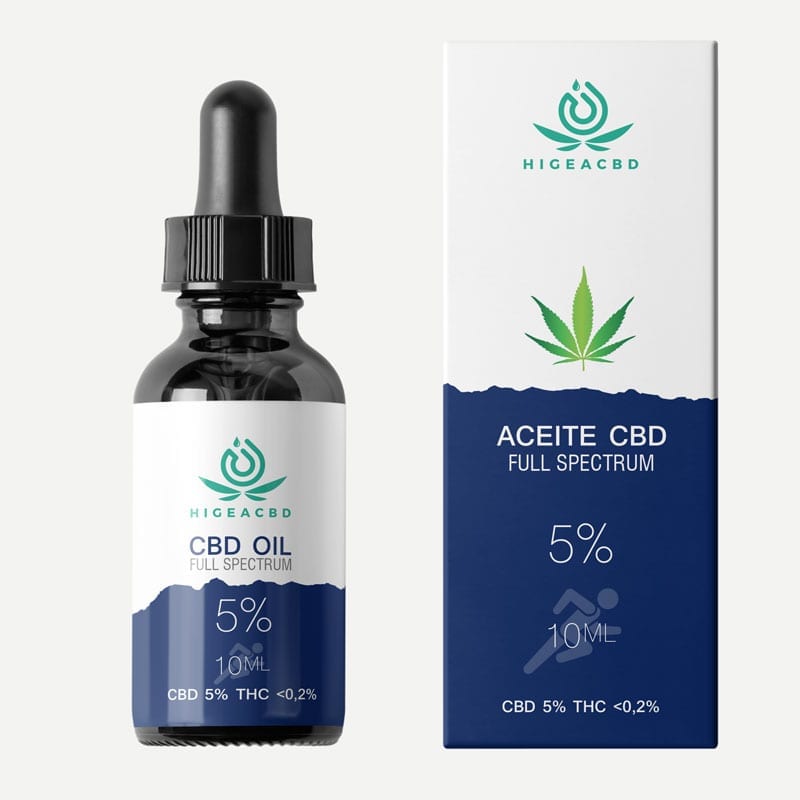
CBD Dosage for Atherosclerosis
Because the dosage of CBD varies greatly from person to person, it’s best to start moderately and gradually increase the dosage over time to see how it affects you. On the Higea CBD website you can find a dosage chart that can help you determine the right dosage based on your weight and desired concentration.
Cannabis supplementation at low doses, e.g., 1 mg/kg per day, resulted in a significant reduction in the progression of atherosclerosis during animal tests. This dose is in the middle of the medium and high concentration ranges described below.
We recommend starting with a low dose according to your weight, and gradually increasing to a medium or high dose to treat atherosclerosis. It is essential to take this dose every day to get the most out of it.
Atherosclerosis is a chronic disease that develops over time. Consequently, for disease prevention to be effective, it must be sustained over a long period of time.
Don’t forget to consult your doctor before using CBD for atherosclerosis.
Related articles
CBD bruxism
In this article we will tell you about the benefits of CBD bruxism. What it consists of, symptoms, causes and possible treatments
Can CBD oil help treat postpartum depression?
CBD in the treatment of postpartum depression prevents the breakdown of natural anandamide in the new mother’s body
CBD for rosacea
CBD for rosacea. What this skin condition consists of, its main symptoms, what causes it and the most recommended treatments.
CBD and paroxetine
Paroxetine is an antidepressant that is also used to treat anxiety and depression. Can CBD and paroxetine be consumed?
CBD tinnitus
Whistling or ringing in the ears is a condition experienced by many people and is called tinnitus – can CBD be used?
CBD for hemorrhoids
The most common symptoms of this condition, the causes, its treatment, and how you can use CBD to treat hemorrhoids.
Subscribe to our newsletter
Subscribe and receive a 10% discount on your purchase.
Store
Categories
Guides
Legal notice and privacy policy

